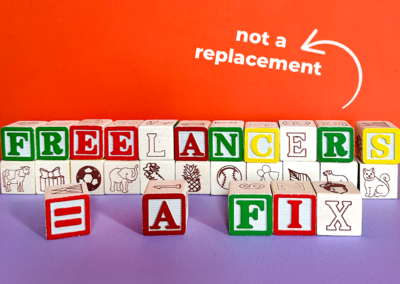In 2018, more than 90% of CEOs agreed that sustainability is important to their company’s success, according to The Next Phase of Business Sustainability, published by Stanford Social Innovation Review. As a result, leadership teams have invested time, money and other resources into building sustainability strategies, marketing sustainable products and services, and creating new C-Suite roles to show their commitment.
Over the past year, businesses at large have expanded their sustainability efforts to support socioeconomic, civil, and health challenges exacerbated by the pandemic, and aimed to address heightened political and racial tensions throughout the country.
Last week marked the one-year anniversary of the murder of George Floyd, a Black man who was tragically murdered by Minneapolis police, and whose death sparked a civil rights movement that had not been seen since the 1960s. While some brand marketers strived to promote solidarity, many began to work on broadening and improving their Diversity & Inclusion, gender equality and sustainability initiatives.
Shelton GRP, an agency focused on energy and the environment, reports that 86% of Americans believe brands should take a stand on social issues, and that the time for them to deepen their social impact marketing was yesterday.
Several others are leveraging new strategic partnerships to amplify their voice, show their support, and initiate change. Here are three strategic partnerships that brands should consider to directly contribute to their social impact initiatives.
1) Certified B Corporations for legal accountability
BCorporation.net, the nonprofit designating Certified B Corporations, state they are “a new kind of business that balances purpose and profit.” To become a Certified B Corporation, organizations are legally required to “consider the impact of their decisions on their workers, customers, suppliers, community, and the environment.” The legal accountability goes beyond a quick financial sponsorship, or a logo placement on a product label.
Though the first dozen B corporations were certified in 2007, today there are over 3,500 Certified B Corporations in more than 70 countries. These businesses are building leadership and supporting a movement to enable using business for good.
More information on becoming a B Certified Corporation here.
2) Givsly for donating time and giving back
Givsly is a platform that helps companies book meetings and is directed at enabling leaders to donate their professional time in exchange for a donation to a favorite nonprofit. Givsly, which is categorized as a benefit corporation, is committed to creating public benefit and sustainable value in addition to generating profit.
Their partners are given the opportunity to build strong working relationships with marketers, advertisers and media students. Additionally, they are able to prioritize social good through four key Givsly Experiences: The Givsly Monthly Cause Calendar, The Givsly5 Pledge, The Givsly and SuitUp Summer Boot Camp, and Givsly’s Season Without Swag. In 2020, their Season Without Swag event raised almost $350,000 which was donated to over 20 different nonprofits.
More information on Givsly Exclusive Experiences can be found here.
3) Partnering with the right brand, agency and leaders
Whether you’re a leader at a well-seasoned brand looking to rev up its PR efforts, a start-up just exploring co-branded opportunities, or an organization strategizing its social impact efforts, hiring the right agency and partnering with the right brand is critical.
If you’re looking to hire professionals to help develop your brand’s social impact strategy or execute a philanthropic project, you’ll want a team that specializes in doing so. Pharma, retail and auto brands aren’t the only sectors that can access specialty marketing services. Creative agencies can help support branding, marketing, advertising and PR initiatives for brands that are mission-driven. Consultancies like Matter Unlimited have expertise in social good campaigns, outreach, fundraising strategies, thought leadership and more.
For more information on identifying the right time to hire a creative agency for your social impact organization, read this guide by Cosmic on choosing the right agency.
Stick to your truth — but first, you must recognize what your truth is
While there are no shortages of causes and movements to support, picking the right ones are key to remaining authentic to your brand, but more importantly, to your audience. The types of business and marketing partnerships a brand decides to take on are crucial for aligning a brand’s vision for all stakeholders. Partnerships show employees, clients, consumers and competitors what the brand’s interests and goals are, but the wrong affiliation may result in bad PR or a much more drastic turn for the organization.
Work for social good should follow from the efforts going on within a company’s walls (or screens) and extend outwards to make a real difference within a community.
No matter the partnership, initiative or stance taken, the first step towards successful social impact marketing requires brands, leaders and organizations to be vulnerable.
Consumers and employees expect brands, and the leaders who endorse them to implement authentic actions that progress communities, social and environmental change, and foster meaningful experiences and connections.
Dominique’s Socials: LinkedIn, Twitter, Instagram



